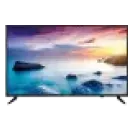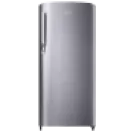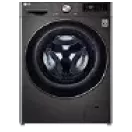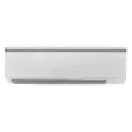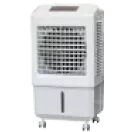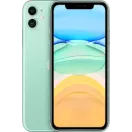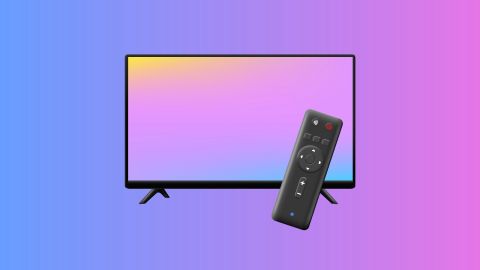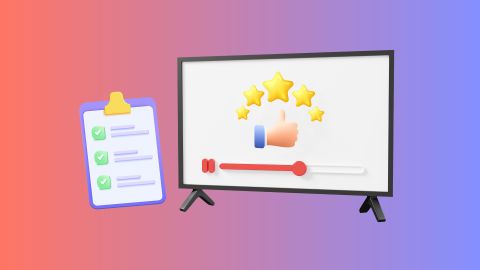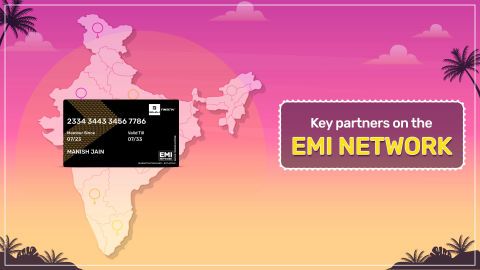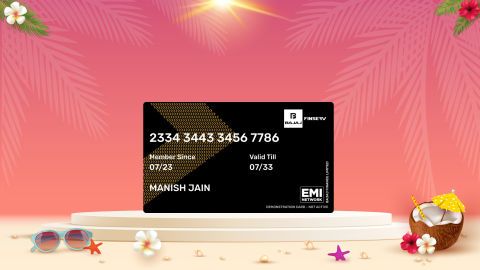Explore a diverse range of water softeners and conditioners on Bajaj Mall or visit our partner stores for a wide selection of renowned brands. Once you have made your decision, visit any of Bajaj Finserv's 1.5 lakh partner stores across 4,000 cities in India to complete your purchase. With Bajaj Finserv's financing options, you can buy your water softener on easy EMIs, making the purchase more affordable and convenient. Enjoy a seamless shopping experience and bring home a high-quality automatic water softener without worrying about the upfront cost.
3 min
18-Nov-2024
Water softeners physically remove hard minerals from water, ensuring improved soap efficiency, softer laundry, and scale-free appliances. In contrast, water conditioners modify mineral behaviour, preventing limescale without removing the minerals. Both systems have unique benefits, and selecting the right one depends on your water quality and household requirements.
Explore a diverse range of water softeners and conditioners on Bajaj Mall or visit our partner stores for a wide selection of renowned brands. Once you have made your decision, visit any of Bajaj Finserv's 1.5 lakh partner stores across 4,000 cities in India to complete your purchase. With Bajaj Finserv's financing options, you can buy your water softener on easy EMIs, making the purchase more affordable and convenient. Enjoy a seamless shopping experience and bring home a high-quality automatic water softener without worrying about the upfront cost.
Explore a diverse range of water softeners and conditioners on Bajaj Mall or visit our partner stores for a wide selection of renowned brands. Once you have made your decision, visit any of Bajaj Finserv's 1.5 lakh partner stores across 4,000 cities in India to complete your purchase. With Bajaj Finserv's financing options, you can buy your water softener on easy EMIs, making the purchase more affordable and convenient. Enjoy a seamless shopping experience and bring home a high-quality automatic water softener without worrying about the upfront cost.
Introduction: Understanding water treatment options
Water treatment systems play a vital role in improving water quality for households and businesses. Hard water, rich in minerals like calcium and magnesium, can cause limescale buildup, reduce appliance efficiency, and impact daily tasks such as cleaning and bathing. Water softeners and water conditioners are two popular solutions to address hard water problems, but they function differently. While water softeners remove hard minerals, conditioners alter their structure to prevent buildup. Understanding these differences helps you make an informed choice based on your water quality needs. Advanced systems, such as electronic water softeners, offer efficient solutions for maintaining water quality and protecting appliances.
Options like a water softener for tanks and 3M water softeners are popular choices for effective water softening.
Solutions like automatic water softeners often combine conditioning and softening technologies for enhanced efficiency.
Water softeners are better for homes with high water hardness levels, while conditioners work well for moderate hardness and eco-friendly requirements. Additionally, water softeners require regular maintenance, including salt refills, whereas conditioners have lower upkeep needs.
For advanced solutions, consider hybrid systems that combine both technologies for optimal results. Whether you opt for a water softener, a conditioner, or a combination system, brands like ZeroB water softeners offer reliable options tailored to your needs. Evaluating your water quality and consulting a professional can help you make an informed choice for long-term water treatment efficiency.
You can visit one of our partner stores, select the water softener of your choice and convert the cost into Easy EMIs. You can choose to repay it in a convenient tenure of up to 60 months. This financing solution from Bajaj Finserv is available on 1 million products.
What is water softening
Water softening removes hard minerals like calcium and magnesium from water. The process typically uses ion exchange, where sodium or potassium ions replace hard minerals. Soft water prevents limescale buildup in pipes, fixtures, and appliances. It improves soap efficiency, leading to better lather and cleaner dishes, clothes, and surfaces. Water softeners help extend the lifespan of water-using appliances, such as washing machines and dishwashers. They are ideal for households with high water hardness levels.Options like a water softener for tanks and 3M water softeners are popular choices for effective water softening.
What is water conditioning?
Water conditioners alter the structure of hard water minerals without removing them. They prevent minerals from forming limescale deposits on pipes, appliances, and fixtures. Unlike softeners, conditioners do not add sodium or potassium to the water. Water conditioning is typically achieved using magnetic or catalytic processes. Conditioned water is environmentally friendly and requires less maintenance. It is an excellent choice for areas with moderate water hardness.Solutions like automatic water softeners often combine conditioning and softening technologies for enhanced efficiency.
Key differences between water softening and water conditioning
- Mineral removal: Water softeners remove hard minerals, while conditioners alter their structure.
- Limescale prevention: Softeners prevent limescale by removing minerals; conditioners prevent it by changing mineral properties.
- Salt usage: Softeners require salt for the ion exchange process, while conditioners are salt-free.
- Water feel: Softened water feels smoother and improves soap lather; conditioned water retains its natural feel.
- Environmental impact: Conditioners are generally considered more eco-friendly due to their salt-free operation.
- Maintenance: Water softeners require regular salt refills and resin cleaning; conditioners are typically low-maintenance.
- Drinking safety: Softened water may have higher sodium levels, while conditioned water retains its original composition.
Choosing the right solution for your water quality needs
Selecting between a water softener and a water conditioner depends on your specific water quality issues, household needs, and budget. If you face severe hard water problems with visible limescale buildup and poor soap efficiency, a water softener is the ideal choice. On the other hand, if your primary concern is preventing scale formation without altering water composition, a water conditioner may be more suitable.Water softeners are better for homes with high water hardness levels, while conditioners work well for moderate hardness and eco-friendly requirements. Additionally, water softeners require regular maintenance, including salt refills, whereas conditioners have lower upkeep needs.
For advanced solutions, consider hybrid systems that combine both technologies for optimal results. Whether you opt for a water softener, a conditioner, or a combination system, brands like ZeroB water softeners offer reliable options tailored to your needs. Evaluating your water quality and consulting a professional can help you make an informed choice for long-term water treatment efficiency.
You can visit one of our partner stores, select the water softener of your choice and convert the cost into Easy EMIs. You can choose to repay it in a convenient tenure of up to 60 months. This financing solution from Bajaj Finserv is available on 1 million products.
Explore Aqua water softeners on EMI with Bajaj Finserv
Discover comprehensive details, features, and specifications of water softeners and conditioners on Bajaj Mall. After gathering the information you need, visit a nearby Bajaj Finserv partner store to choose your ideal water softener. Utilise Bajaj Finserv’s financing options and select a repayment tenure that suits you.Benefits of Shopping with Bajaj Finserv’s financing options
- Competitive prices: Enjoy budget-friendly pricing on water softeners at Bajaj Finserv partner stores.
- Easy EMIs: Purchase your preferred model hassle-free with affordable EMI options.
- Zero down payment: Start using your water softener immediately without initial lump sum payments.
- Options and accessibility: Explore a wide range of products at partner stores across multiple cities.
- Free home delivery: Selected products are delivered to your doorstep at no extra cost.
Water softener
Bajaj Finserv App for all your financial needs and goals
Trusted by 50 million+ customers in India, Bajaj Finserv App is a one-stop solution for all your financial needs and goals.
You can use the Bajaj Finserv App to:
Apply for loans online, such as Instant Personal Loan, Home Loan, Business Loan, Gold Loan, and more.
You can use the Bajaj Finserv App to:
Apply for loans online, such as Instant Personal Loan, Home Loan, Business Loan, Gold Loan, and more.
- Explore and apply for co-branded credit cards online.
- Invest in fixed deposits and mutual funds on the app.
- Choose from multiple insurance for your health, motor and even pocket insurance, from various insurance providers.
- Pay and manage your bills and recharges using the BBPS platform. Use Bajaj Pay and Bajaj Wallet for quick and simple money transfers and transactions.
- Apply for Insta EMI Card and get a pre-approved limit on the app. Explore over 1 million products on the app that can be purchased from a partner store on Easy EMIs.
- Shop from over 100+ brand partners that offer a diverse range of products and services.
- Use specialised tools like EMI calculators, SIP Calculators
- Check your credit score, download loan statements, and even get quick customer support—all on the app.
Frequently asked questions
What is the main difference between water softening and conditioning?
Water softening removes hard minerals like calcium and magnesium through an ion exchange process, while water conditioning alters the structure of these minerals to prevent limescale buildup. Softening physically removes hardness, whereas conditioning minimises its effects without eliminating the minerals from the water.
Does water conditioning improve water taste?
Water conditioning does not significantly alter the taste of water, as it does not remove minerals or impurities. Its primary purpose is to prevent limescale buildup. If water taste is a concern, additional filtration systems may be required alongside a water conditioner.
Can water conditioning remove hardness like softening does?
No, water conditioning does not remove hardness minerals from water. It only changes their structure to prevent them from sticking to surfaces and forming limescale. Water softeners, on the other hand, physically remove calcium and magnesium ions, effectively reducing water hardness.
Is water softening expensive to maintain?
Water softeners require regular maintenance, including salt refills, resin tank cleaning, and occasional professional servicing. While these tasks incur costs, they are generally manageable. Proper maintenance prevents costly appliance repairs caused by hard water damage, making it a worthwhile long-term investment.
Show More
Show Less
